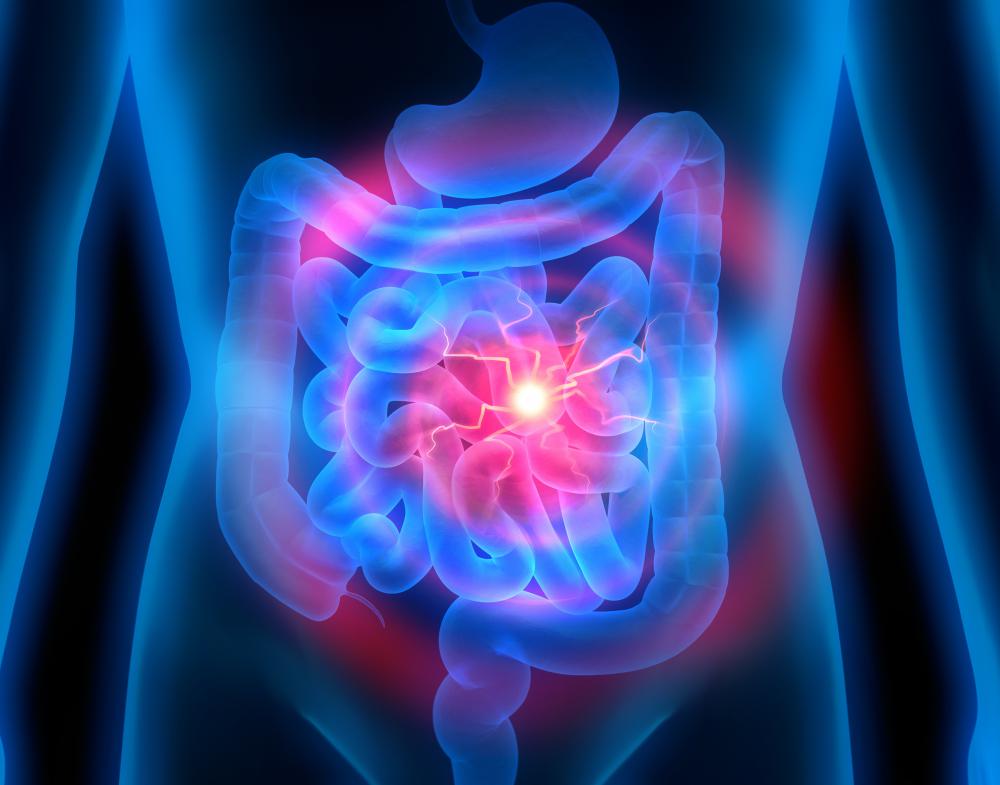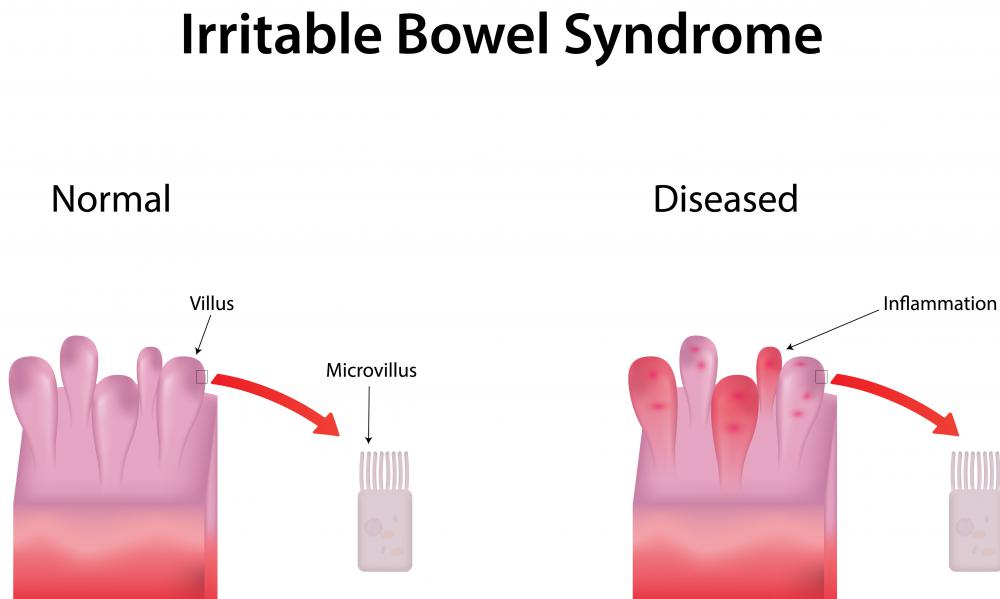At TheHealthBoard, we're committed to delivering accurate, trustworthy information. Our expert-authored content is rigorously fact-checked and sourced from credible authorities. Discover how we uphold the highest standards in providing you with reliable knowledge.
What is Vitamin Malabsorption?
When the small intestine is unable to properly process certain vitamins and nutrients, this condition is referred to a vitamin malabsorption. People who suffer from this condition cannot absorb essential vitamins that are included in food, which may cause physical weakness. This condition prevents both water-soluble and fat-soluble vitamins from being absorbed by the body, and there are many different causes of malabsorption.
The result of malabsorption often differs from patient to patient, though most patients will experience fatigue, weight loss, and general lethargy. There are many different reasons why poor vitamin absorption may occur, although the most common reasons are enzyme deficiency, surface area loss, bacterial overgrowth, mucosal abnormalities, and lymph vessel issues.

Enzyme deficiency occurs when the body does not have the chemicals or enzymes necessary in order to process certain foods. This type of deficiency can also be a direct result of pancreatic failure. When the pancreas cannot produce proper enzymes, the result is often vitamin malabsorption.
When a person has undergone any kind of bowel surgery, malabsorption may occur as a result of surface area loss. Following the removal of a portion of the bowel, the body may not be able to absorb nutrients properly. This type of malabsorption frequently occurs after any kind of bariatric surgery.

Bacterial overgrowth caused by damage to the intestinal lining can also lead to a vitamin deficiency. Numerous illnesses can cause bacterial overgrowth, including Whipple disease and irritable bowel syndrome. Further, a person who has been taking any kind of pump inhibitor may also experience bacterial overgrowth.
Mucosal abnormalities, such as Celiac disease, can also cause the body to reject certain vitamins and nutrients. Following damage done to the mucosal lining of the small intestine, it may be difficult for a person to absorb vitamins properly. Any type of mucosal infection can lead to malabsorption. Lastly, lymph vessel obstructions may prevent the body from absorbing vitamins efficiently. When lymph vessels become enlarged, they can no longer carry important nutrients to the blood, which causes a vitamin deficiency.

It is nearly impossible to detect vitamin malabsorption with the naked eye. Even though a person may experience symptoms of malabsorption, including fatigue and weight loss, only a qualified medical doctor can diagnose the condition. Once a person has been properly diagnosed, certain treatments can begin in order to restore necessary vitamins to the body. Treatments for malabsorption greatly vary depending upon the cause of the deficiency.
AS FEATURED ON:
AS FEATURED ON:
















Discussion Comments
@SkittisH - In your case, yes, your malabsorption of vitamin D is caused by your Irritable Bowel Syndrome. It's easy to assume that this happens because you have diarrhea all the time, but the problem isn't the vitamins flushing out too fast to be digested. It's actually that the Irritable Bowel Syndrome is damaging the mucus lining of your intestines, disrupting how well they can absorb nutrients.
Since Irritable Bowel Syndrome currently has no cure, I figure the treatment for your condition would be like TheGraham's -- you would need to get regular injections of vitamin D to get it into your system without your intestines needing to absorb it. That's my best guess.
Since vitamin D comes from the sun, just going outside for ten minutes a day might also help. I've heard that there are treatments for vitamin D deficiencies using UV light, too.
One of the leading causes of vitamin malnutrition is intestinal parasites. An icky subject, I know, but very related to this topic.
Parasitic organisms, including hookworm, roundworm and flatworm, munch on the proteins, carbohydrates, fats and yes, vitamins that your food contains. That means that you will end up with vitamin deficiencies because there's less vitamins left for you to absorb after the little nasties finish their meals. You wind up with the same symptoms, though -- anemia, feeling constantly out of breath, being tired all the time, and looking pale.
If anybody here is reading about this because they think they might have a vitamin malabsorption problem, I highly recommend you get yourself tested for having parasites as well. It could be that your intestines would absorb fine, if the parasites would stop eating the nutritious stuff in the food you eat before it can get digested fully.
Vitamin B12 malabsorption can cause anemia. I had a big problem with anemia for a long time, and always believed that it was caused by an iron deficiency. Taking iron supplements didn't seem to be helping.
Eventually, after having the doctor examine me, I found that not only was my anemia caused by vitamin B12 deficiency, not a lack of iron, but the deficiency was not because I hadn't been eating enough. It was because my intestines weren't absorbing enough.
Apparently, my condition is pretty rare. I have what they call congenital vitamin B12 malabsorption -- I was born with an inability to properly absorb vitamin B12 from food like a regular person. This explains a lot about why I was always short of breath, pale and anemic growing up.
The treatment for my condition is to have vitamin B12 injections regularly. It's not that big a deal to take them -- and I feel so, so much better now that I've got some vitamin B12 in my system!
Wait, can Irritable Bowel Syndrome cause vitamin D malabsorption? If so, this would explain a lot about why I keep getting vitamin D deficiency symptoms even though I take supplements. If I can't absorb vitamins, though, what can be done to fix it?
Post your comments